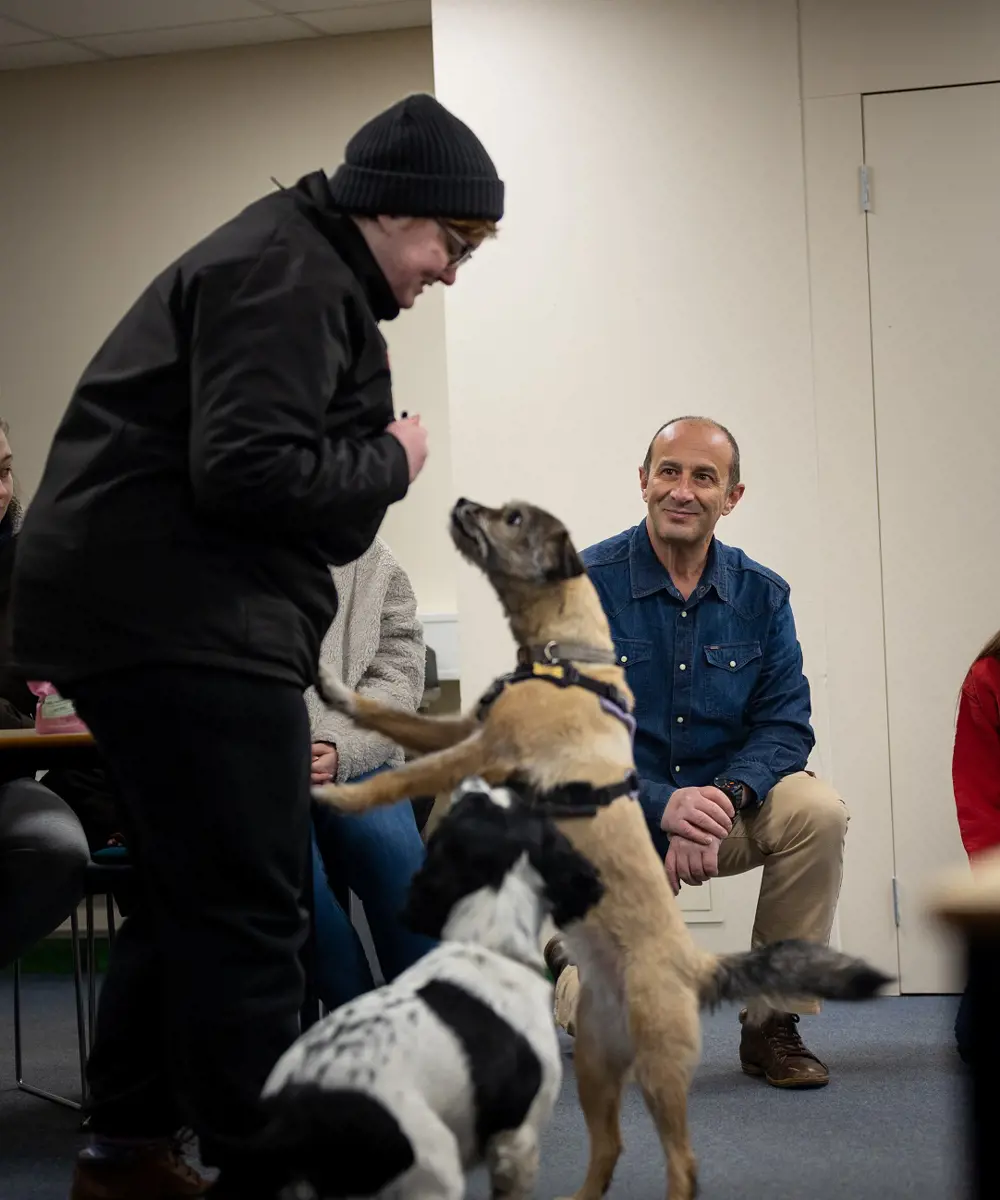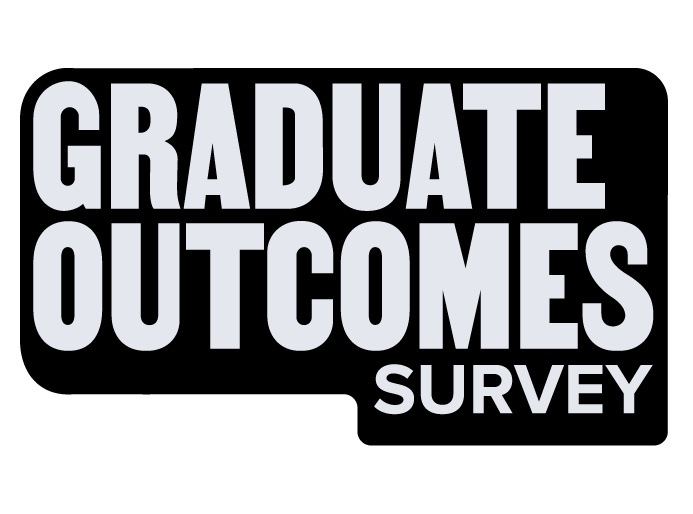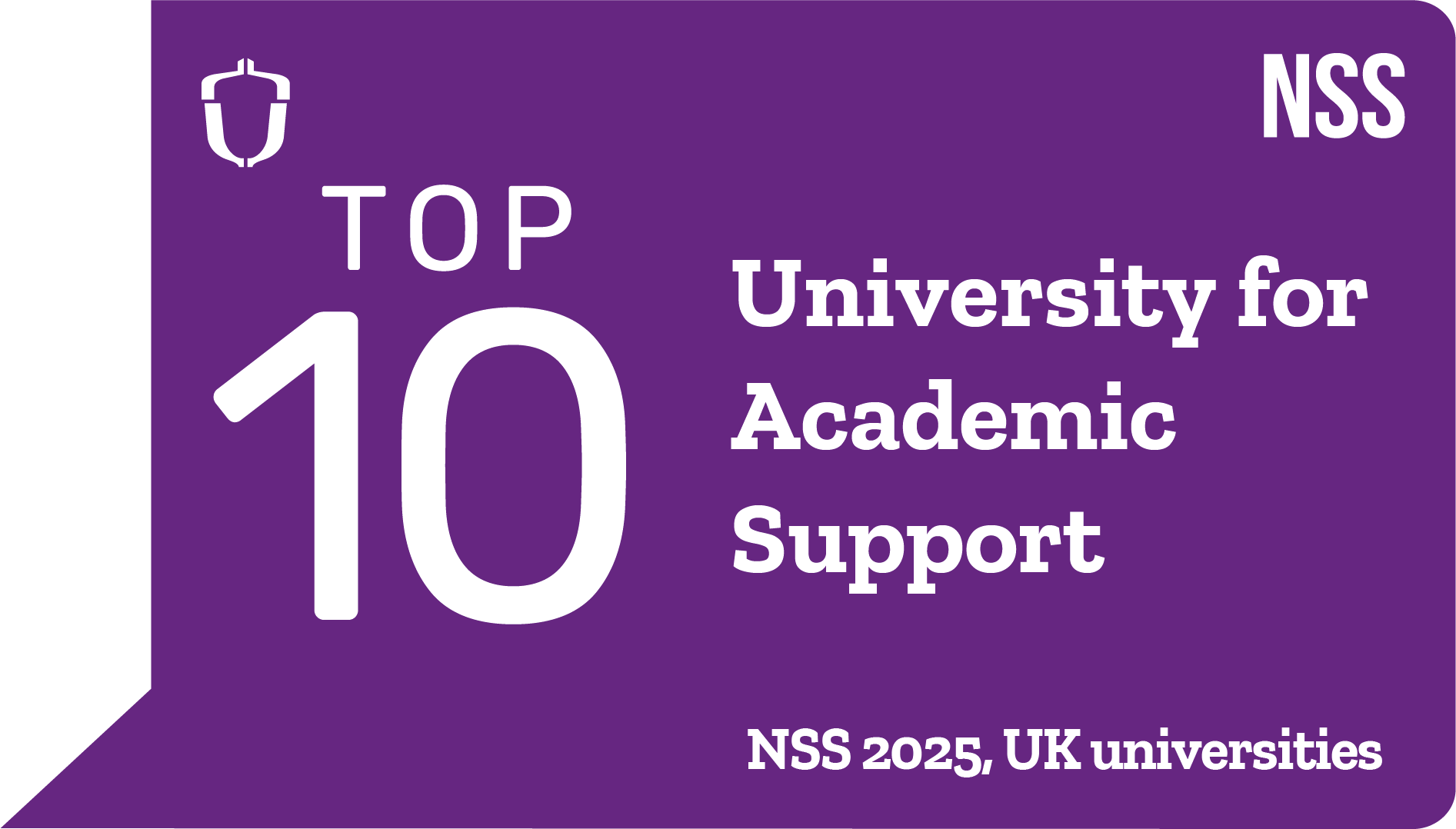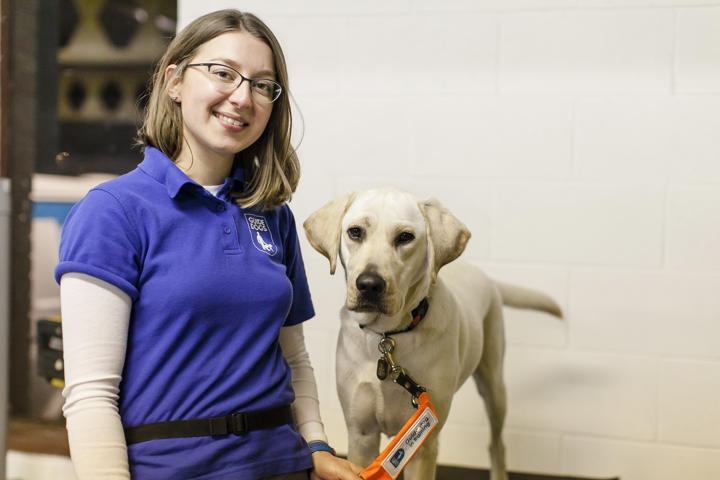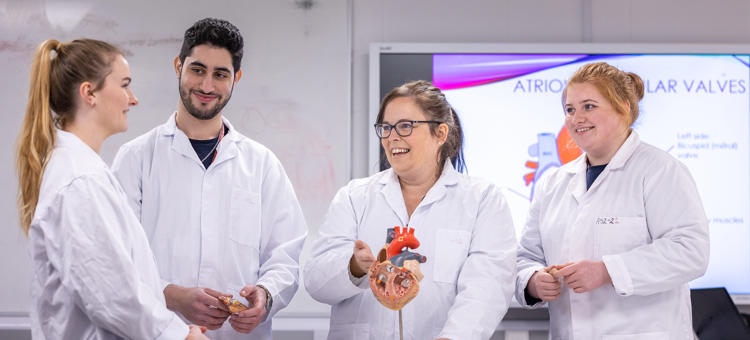You’ll gain an in depth understanding of the key topics in the field of animal behaviour and training. Core subjects will range from management and training of the animal, to the physiology of animal behaviour. You will engage in practical activities across a wide range of species including not only dogs but many of the other animals held within our 70 species collection. Your studies will prepare you for entering a diverse animal sector, from running your own private enterprise to large charitable and commercial organisations. You will be able to engage in activities training animals for standard husbandry and management right up to supporting the wellbeing and recovery of animals displaying problematic behaviours. Your engagement with industry placements and real-world case studies throughout the three years, as well as the clear focus on how to communicate effectively with animal caregivers, will prepare you well for your future career. By tailoring your industry placement and research project on dogs you will be able to focus your award on the area you wish to specialise in.
This course and its training are underpinned by the strictest ethics and supported by the latest scientific evidence. You’ll learn from the latest advances in the field and use industry-standard technologies.
*UK Pet Food 2023
Recognised by the Animal Behaviour and Training Council (ABTC)
This programme has been formally recognised with the Animal Behaviour & Training Council (ABTC) Programme Recognition Committee to deliver the academic elements necessary for an individual to achieve ABTC recognition as:
- Animal Trainer (AT) – during year 1
- Animal Training Instructor (ATI) – during year 2
- Animal Behaviour Technician (ABT) – during year 2
- Clinical Animal Behaviourist (CAB) – during year 3
An individual who has met the ABTC knowledge and understanding (academic) requirements, and who wishes to be ABTC registered will then need to undertake an assessment of the performance criteria via an ABTC Practitioner Organisation. Students will be supported with this process throughout their study.
Find out more about the benefits of becoming an ABTC practitioner.
We're committed to supporting you to fulfil your unique potential.
Your support network
You'll benefit from a strong support network from day one to be the best you can be. This will range from your personal tutor and specialist academic support team (our Achievement and Success Centre) to dedicated wellbeing and employability (Innovation, Careers and Enterprise) centres.
Academic support
You’ll have your own personal tutor while you’re here who will support you to succeed in your studies. You’ll also have access to our academic and wellbeing support teams who run regular workshops and one-to-one sessions on campus and online. Alongside this, we have a comprehensive bank of online study skills resources to help you make the most of your qualification.
Your learning experiences
You'll experience a range of teaching methods to strengthen your digestion of topics, including lectures, workshops and practical sessions, as well as supported work placement learning as part of many courses.
Your career
Each year of your course will be made up of two semesters, within which you’ll study compulsory and optional modules on different industry-focused topics, enabling you to develop your own unique portfolio of knowledge, skills and experience, ready for your career. The course is taught in English.

